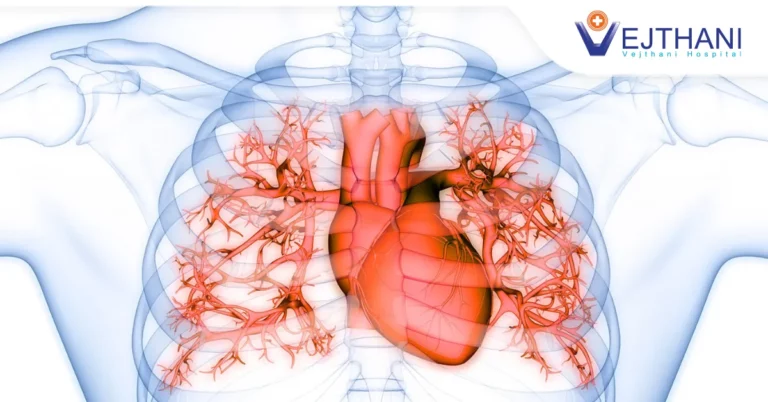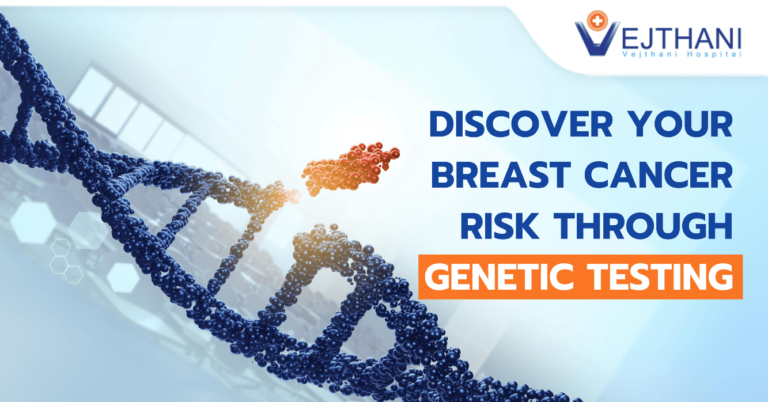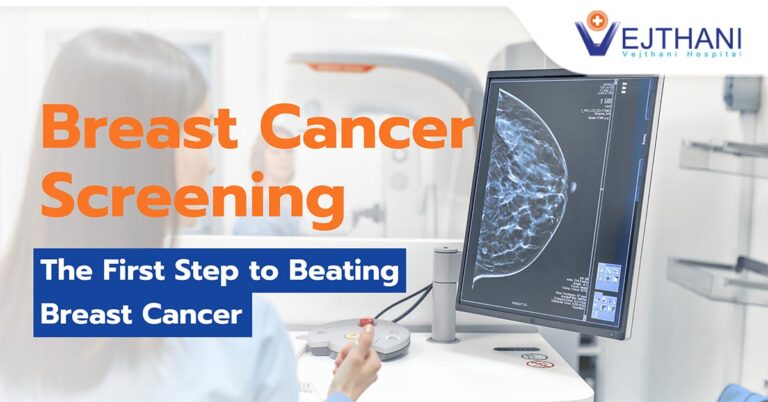Abdominal pain or stomach discomfort isn’t usually a cause for significant concern. Generally, it’s merely a sign of gas, acid reflux, bloating, or indigestion. However, even mild stomachache, sharp pains, cramps, and abdominal pain can stem from a variety of more severe causes, such as ulcers, gallstones, and even liver cancer. How do you know if it’s something requiring investigation? You check with the expert digestive tract specialists at Vejthani Hospital.
This venerable health institution in Bangkok has been caring for patients from around the world for over 20 years at its renowned Hepato-Pancreato-Biliary (HPB) Clinic. Focused on diagnosing and treating disorders of the digestive system, the highly trained team of HPB specialists employ state-of-the-art technology to ensure optimum patient consultation and care. They are considered the premier hospital for liver cancer treatment in Thailand.
Liver Cancer: The Silent Killer
Primary liver cancer is a malignant tumor that begins in the liver. There are three different types:
- hepatocellular carcinoma (hepatoma), the most common type, starts in the main cell type in the liver,
- cholangiocarcinoma, starts in the bile duct cell lining,
- angiosarcoma, the rarest type, which starts in the blood vessels.
Secondary cancer is so-called because it started somewhere else in the body and then spread to the liver. For example, a patient could have primary colon cancer with liver secondaries.
Liver cancer symptoms
These are most likely to appear as cancer grows or becomes advanced.
- feeling nauseous
- jaundiced (yellow) skin and eyes
- loss of appetite
- pale bowel motions
- persistent fever
- severe pain and/or swelling of the abdomen (often in the upper right side)
- weakness and tiredness
- weight loss
Causes of liver cancer
Hepatitis B or C viruses, which result in long-term (chronic) infection, can cause liver cancer. This is the most significant known risk factor for primary liver cancer worldwide.
There are other factors that can increase the risk of developing liver cancer, such as liver scarring, obesity, fatty liver disease, smoking, type 2 diabetes, high alcohol consumption, and
exposure to certain chemicals.
Diagnosis of liver cancer
Tests to diagnose both liver cancer and secondary cancer of the liver include:
- Biopsy
- Blood test
- CT scan
- MRI scan
- PET-CT scan
- Ultrasound
Treatment for liver cancer
Some other standard treatment options for both primary and secondary liver cancer are as follows:
- Surgery – Surgery can involve removing part of the liver, or a full liver transplant from a donor. Surgery is not suitable for all patients; it will depend on the size, number, and position of the tumors the patient has.
- Tumor ablation – The most common types of tumor ablation treatments destroy cancer cells using heat from radio waves and microwaves.
- Chemotherapy – Depending on the type of liver cancer you have, cancer can be killed, shrunk, or slowed down with the use of chemotherapy drugs.
- Biological therapy – This treatment works against the cancer cells, encouraging the body’s immune system to stop their growth and/or function and ultimately destroy them.
- Selective internal radiation therapy (SIRT) – Also known as radioembolization, this treatment utilizes high doses of internal radiation to target liver tumors directly.
- Endoscopic stent placement – If the bile duct has been obstructed, a stent (thin tube) will be placed in your liver to drain the bile and ease symptoms.
Prognosis of liver cancer
An individual’s prognosis (i.e., expected outcome) depends mainly on your age, general health, and fitness at the time of diagnosis and the type and stage of cancer in question. Additionally, your doctor will take into consideration test results, the type of liver cancer you have, how fast tumors are growing/spreading, and medical history.
Preventing liver cancer
The most significant known risk factors for causing liver cancer are Hepatitis C and B infections. At present, vaccinating at-risk people against the virus, and monitoring the health of people already infected with the virus, is the only strategy to prevent its spread. There is currently no known test or cure for liver cancer.
Holistic Care @ HPB Clinic
Liver, pancreas, and biliary tract diseases are major health problems not only in Thailand but worldwide. Some 20% of the more than 300,000 international patients that visit Vejthani Hospital annually suffer from digestive tract ailments such as hepatoma, cholangiocarcinoma, pancreatic cancer, hepatitis, alcoholic liver disease and cirrhosis, pancreatitis, and gallstones.
While many of the diseases treated at the HPB Clinic are manageable, they can adversely affect patients’ quality of life. That’s why the goal here is not only effective treatments to cure the root condition but also the application of advanced clinical care methodologies that improve people’s daily lives.
In cases where surgery is needed, Vejthani Hospital has state-of-the-art facilities and modern equipment required. The specialized medical team can offer endoscopic and laparoscopic surgery as well as personalized post-operative rehabilitation.
The qualified medical team of gastroenterologists, surgeons, radiologists, anesthesiologists, and skilled nurses that make up the HPB Clinic team at Vejthani Hospital are second to none in the capital city. They’re a dedicated group committed to accurate diagnoses, scrupulous treatments, and professional rehabilitative care for pancreas, liver, and other biliary tract disorders.
If you require liver cancer treatment in Thailand, consult a doctor at Vejthani hospital to receive effective solution for liver diseases.
- Readers Rating
- Rated 4.9 stars
4.9 / 5 ( Reviewers) - Spectacular
- Your Rating




























